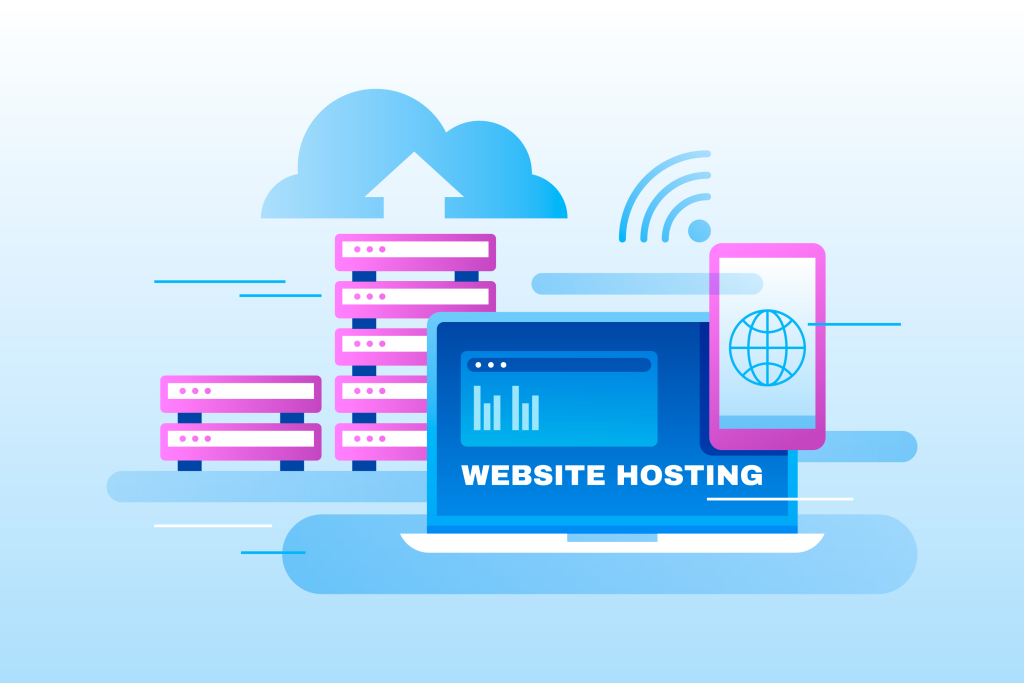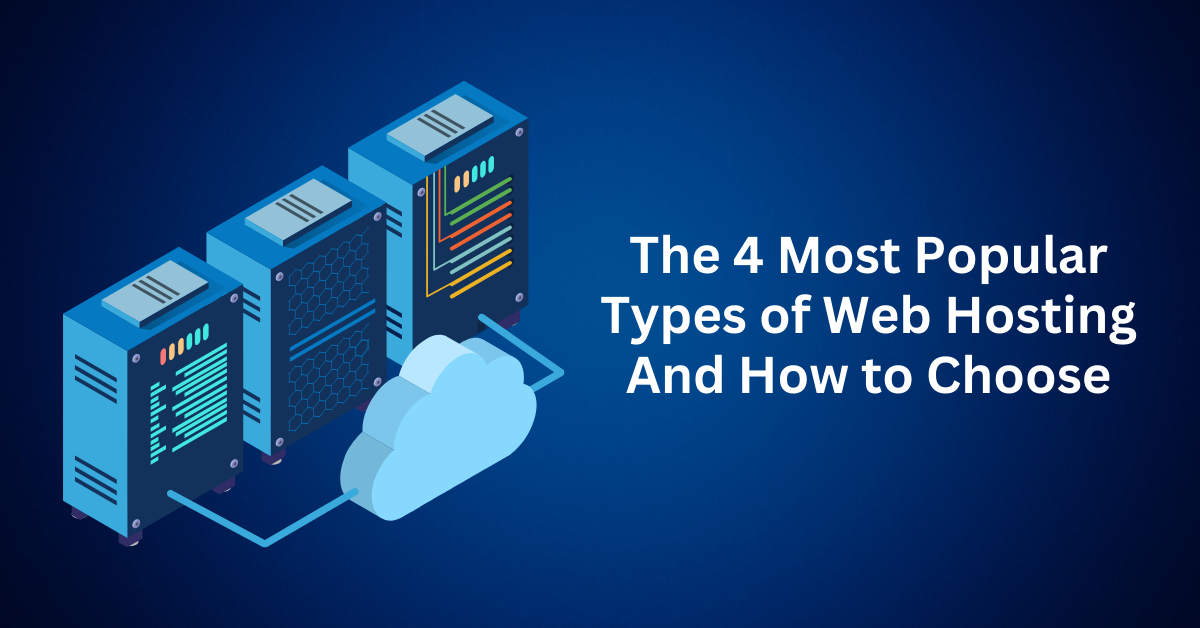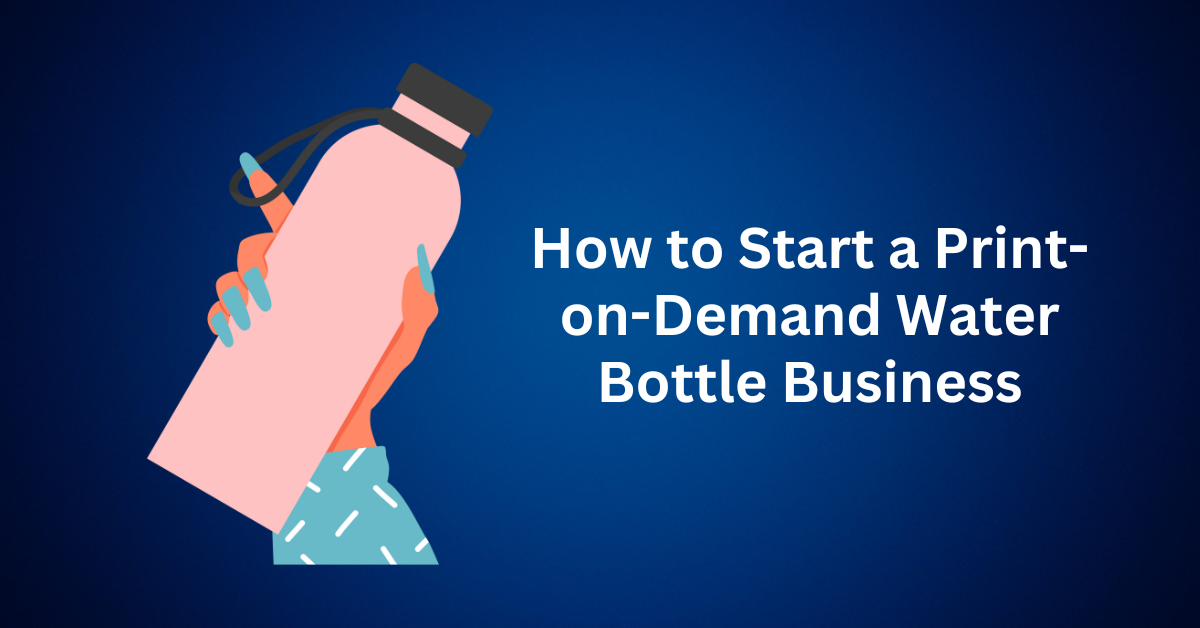Choosing the right web hosting plan can feel overwhelming. With so many providers and plans on the market, it’s easy to get lost in technical jargon or end up with a package that doesn’t actually fit your needs. The wrong choice can slow down your site, create security issues, or even drive visitors away.
That’s why it’s important to understand the main types of web hosting, how they differ, and which one best matches your business goals. In this guide, we’ll break down the four most popular hosting options: shared hosting, VPS hosting, dedicated hosting, and cloud hosting, so you can make an informed decision.

Table of Contents
ToggleWhy Choosing the Right Web Hosting Matters
Your hosting provider is the backbone of your website, and it directly influences several critical factors. First, it impacts website speed and performance—faster load times not only improve user experience but also boost SEO rankings. Second, it affects reliability and uptime, since a strong host ensures your site is always available to visitors. Third, hosting plays a key role in security by protecting your data and preventing cyberattacks. Finally, scalability is another crucial aspect, as the right plan makes it easier to grow without hitting performance bottlenecks.
In short, web hosting is not a “one size fits all” service. A small personal blog has very different hosting needs compared to a busy online store or a corporate website.
The 4 Most Common Types of Web Hosting
1. Shared Web Hosting – Best for Beginners and Small Websites
Shared hosting is the most affordable entry-level option. Multiple websites are hosted on the same server, which means you share resources such as storage, memory, and bandwidth with other users.
Pros of Shared Hosting:
- Low cost (perfect for budget-conscious users)
- Simple setup and management
- Often includes beginner-friendly tools like one-click WordPress installs
Cons of Shared Hosting:
- Limited resources (performance can suffer during traffic spikes)
- Less customization and control
- A shared environment may pose some security risks
Who should choose shared hosting?
- New bloggers
- Personal websites or portfolios
- Small businesses that don’t expect heavy traffic
2. VPS Web Hosting – A Balance of Power and Price
VPS (Virtual Private Server) hosting is the middle ground between shared and dedicated hosting. While you still share a physical server with others, your website is allocated a dedicated portion of resources, giving you more stability and control.
Pros of VPS Hosting:
- Greater performance and reliability compared to shared hosting
- Scalable resources as your site grows
- Higher level of customization
- Stronger security compared to shared hosting
Cons of VPS Hosting:
- More expensive than shared hosting
- Requires some technical knowledge for setup and management
Who should choose VPS hosting?
- Medium-sized businesses
- eCommerce stores with growing traffic
- Bloggers or entrepreneurs who need more flexibility than shared hosting offers
3. Dedicated Web Hosting – Power and Control for High-Traffic Websites
Dedicated hosting means you rent an entire physical server exclusively for your website. In other words, there are no shared resources and no limitations from other users. As a result, you gain full control along with maximum performance.
Pros of Dedicated Hosting:
- Best possible performance and speed
- High-level security and reliability
- Full server control (software, settings, and configurations)
- Ideal for websites with high traffic or resource-heavy applications
Cons of Dedicated Hosting:
- Higher cost compared to VPS or shared hosting
- Requires advanced technical expertise to manage
Who should choose dedicated hosting?
- Large enterprises
- High-traffic eCommerce websites
- Businesses needing advanced security and compliance
4. Cloud Web Hosting – Scalable and Flexible
Cloud hosting is a modern solution that spreads your website across multiple servers instead of relying on one machine. This setup ensures maximum uptime, flexibility, and scalability, making it one of the most reliable hosting types available.
Pros of Cloud Hosting:
- Highly scalable. Pay for only what you use
- Excellent uptime and reliability
- Handles traffic spikes smoothly
- Strong security infrastructure
Cons of Cloud Hosting:
- Pricing can fluctuate depending on resource usage
- More complex setup compared to shared hosting
Who should choose cloud hosting?
- Agencies managing multiple websites
- Startups expecting fast growth
- Businesses with unpredictable traffic patterns
How to Choose the Right Web Hosting Plan (Step-by-Step Guide)
Selecting the right web hosting plan isn’t just about picking the cheapest option you find online. The hosting service you choose will directly impact your website’s speed, security, scalability, and overall success. To make the right decision, you need to look at your website’s purpose, technical needs, and growth potential.
Here’s a step-by-step guide to help you find the hosting plan that fits your goals.
Step 1: Define Your Website’s Purpose
Before looking at hosting plans, ask yourself: What kind of website am I building, and why?
- Small business websites: A simple site with an About page, services, testimonials, and a blog section is usually enough. Shared hosting is often a cost-effective choice here.
- ECommerce websites: Running an online store requires far more than just basic hosting. To begin with, you’ll need secure payment gateways and SSL certificates to protect customer data. In addition, product pages with images and videos, customer support integrations, and order tracking features are essential to deliver a seamless shopping experience. For these reasons, cloud hosting or VPS hosting is usually better suited for eCommerce sites.
- Blogs and content websites: If your main goal is publishing articles, tutorials, or guides, you’ll want hosting that provides fast page loads and strong uptime, especially as your audience grows.
- Portfolio websites: For creatives like designers, photographers, or freelancers, hosting should prioritize media support and design flexibility without breaking the bank.
By clarifying your website’s purpose, you can immediately narrow down which hosting type (shared, VPS, cloud, or dedicated) will serve you best.
Step 2: List Your Web Hosting Requirements
Once you know what kind of site you’re building, it’s time to break down your hosting needs. Use these questions as a checklist:
- Which platform will I use (WordPress, Shopify, custom-built)?
- How much traffic do I expect in the next 6–12 months?
- Do I need advanced security features like SSL, firewalls, or DDoS protection?
- Will the site host a lot of media files (images, videos, or downloads)?
- How important are speed and uptime to my business model?
- Do I have the technical knowledge to manage a server, or do I need managed hosting?
- What’s my budget for web hosting?
- How quickly do I expect my website to scale and grow?
- What specific functionalities must the site have (eCommerce, booking system, membership area)?
Answering these questions gives you a clear picture of whether you need something simple (like shared hosting) or a more advanced option (like VPS or cloud hosting).
Step 3: Research and Compare Web Hosting Providers
With your requirements in hand, it’s time to look for a hosting provider that checks all the boxes. There are countless web hosts available, but the key is to focus on quality rather than just price.
When comparing hosting companies, consider:
- Included features: Do they provide free SSL, backups, or CDN?
- Customer support: Is 24/7 live chat or phone support available?
- Reputation: What do customer reviews and expert comparisons say about their reliability and uptime?
- Scalability: Can you easily upgrade your plan as your website grows?
Pro Tip: Don’t hesitate to contact the sales team directly. Ask about what’s included in each plan and whether they offer special packages for your type of site (e.g., WooCommerce hosting for online stores).
Step 4: Compare Web Hosting Plans and Select the Best Fit
Once you’ve narrowed down your providers, review the actual hosting packages they offer. Many providers, such as Bluehost, SiteGround, or HostGator, offer multiple tiers under each hosting type.
For example:
- WordPress hosting: Ideal for blogs, business sites, and content-driven websites.
- WooCommerce hosting: Specifically optimized for online stores with payment integrations and product management features.
- VPS or cloud plans: Best for growing sites that need more speed, flexibility, and reliability.
When comparing, pay close attention to:
- Storage and bandwidth limits
- Security features included
- Uptime guarantees
- Backup options
- Price vs. renewal cost (introductory offers are often cheaper than long-term rates)
Choose the plan that best aligns with the requirements you outlined in Step 2, not just the cheapest option.

When Should You Upgrade Your Web Hosting Plan?
Your website hosting plan isn’t meant to last forever. As your business grows and your traffic increases, the plan that once worked perfectly may no longer keep up with your needs. Failing to upgrade at the right time can lead to slow websites, poor user experience, and lost opportunities.
So how do you know when it’s time to move to a more powerful hosting plan? Here are the key signs to watch for.
1. Slow Website Performance
If your site takes more than a few seconds to load, your hosting plan might be the culprit. Common issues include:
- Pages are loading slowly during peak traffic hours
- Frequent downtime or server errors
- Sluggish response times when visitors click links or interact with features
A slow website isn’t just frustrating for users. Instead, it can also hurt your search engine rankings. Upgrading to a plan with dedicated resources, faster servers, and better caching options can dramatically improve speed and reliability.
2. Significant Growth in Traffic
Maybe you’ve been running ads, investing in SEO, or growing your brand on social media. If you notice a consistent increase in visitors, your current hosting plan may struggle to handle the demand.
Shared hosting, for example, works well for beginners, but as traffic rises, you’ll need more bandwidth and processing power. This is the perfect time to move to VPS, cloud hosting, or even a dedicated server, depending on your growth.
3. Running Into Resource Limits
Do you keep hitting CPU or memory caps in your hosting account? Resource limits can cause:
- Website crashes during traffic spikes
- Inability to upload larger media files
- Errors occur when multiple users access the site at the same time
If you’re constantly brushing against these limits, it’s a clear signal your site has outgrown its current hosting tier. An upgrade ensures you get more storage, memory, and processing power to keep things running smoothly.
4. Security Concerns
Website security is non-negotiable, especially if you handle sensitive customer data, payments, or personal information. Entry-level hosting plans often come with basic protection only, which may leave your site exposed.
If you’ve experienced hacking attempts, malware injections, or other breaches, or if you simply want peace of mind, it’s time to upgrade to a hosting plan that includes:
- Advanced firewalls
- Automatic backups
- DDoS protection
- Enhanced monitoring and support
Your hosting should grow with your security needs, not hold them back.
5. Preparing for Future Expansion
Maybe you’re planning to:
- Launch a new product line or an eCommerce store
- Add more websites under your brand
- Build resource-heavy applications like membership portals or forums
Even if your current hosting plan seems fine now, planning prevents disruption later. Upgrading before expansion ensures your infrastructure is ready to handle new projects without downtime or migration headaches.
How to Assess Your Web Hosting Needs
Before you can choose the right hosting plan, you need a clear understanding of what your website requires. Every site is unique, and the resources that work for a personal blog may not be enough for an eCommerce store or a corporate application. By carefully assessing your hosting needs, you’ll avoid overpaying for unnecessary features or worse, underestimating what it takes to run your website smoothly.
Here are the main factors to consider when evaluating your web hosting requirements.
1. Website Platform
The platform you use to build your website will play a major role in the type of hosting you’ll need.
- Code from scratch (HTML, CSS, JavaScript): If you’re building everything manually, you’ll need hosting that allows full customization, FTP access, and flexible server configurations.
- Content Management Systems (CMS): Platforms like WordPress, Joomla, or Drupal often require hosting optimized for their specific technology stack. Many providers offer managed WordPress hosting with pre-configured environments to save you time.
- SaaS Website Builders: Tools like Squarespace, Wix, or Webflow include hosting within their platform, so you don’t need a separate plan. However, flexibility and scalability are more limited.
- eCommerce Platforms: Online stores require advanced hosting features. You can either:
- Use WooCommerce with WordPress for full control, or
- Opt for SaaS platforms like Shopify or BigCommerce, which simplify management but offer less backend customization.
2. Performance Requirements
Your website’s purpose directly influences its performance needs.
- Small businesses or personal sites: Often fine with shared hosting or entry-level cloud plans.
- Growing startups or blogs with increasing traffic may require VPS hosting for better speed and stability.
- Enterprises and web applications: Need dedicated or high-tier cloud hosting with scalable infrastructure to handle heavy workloads.
Remember: performance isn’t just about load time. Instead, it affects SEO rankings, user experience, and conversion rates.
3. Storage Capacity
The type of content you publish determines how much storage you’ll need.
- Blogs and text-heavy sites: Typically require minimal storage since text files are lightweight.
- Media-rich websites (photography, video, design portfolios, or news outlets): Need much larger storage capacity to accommodate images, videos, and downloadable files.
- ECommerce stores: Require additional storage for product images, customer databases, and order records.
Tip: Always plan. Choose a plan that allows storage upgrades so your website can grow without hitting limits.
4. Security Requirements
Not all websites need the same level of protection, but every site requires baseline security.
- Basic websites (blogs, portfolios): An SSL certificate is usually sufficient to encrypt visitor data.
- ECommerce websites: Must meet stricter compliance standards like PCI DSS, ensuring secure handling of payment details.
- Websites handling sensitive data (finance, healthcare, legal): Require advanced measures such as firewalls, malware detection, intrusion prevention, and regular backups.
If your hosting provider doesn’t include these protections, you may need to integrate third-party security tools.
5. Essential Features
Depending on your website’s goals, you may need specific features bundled into your hosting plan. Some examples include:
- Daily backups: Ideal for news sites or frequently updated blogs.
- Malware scanning and protection: Crucial for sites handling sensitive client information.
- Content Delivery Networks (CDN): Helps global businesses deliver fast-loading pages to users worldwide.
- Scalability tools: Cloud hosting often makes it easy to scale resources automatically during traffic spikes.
Some hosts provide these features in their managed hosting plans, while others sell them as add-ons. Evaluate which features are must-haves for your project.
6. Technical Support and Expertise
Your team’s technical skills should guide your hosting choice.
- Beginner-friendly hosting: Shared or managed WordPress hosting often includes simple dashboards and guided setups.
- Intermediate users: VPS hosting provides more control but requires some knowledge of server management.
- Advanced users or teams with IT staff: Dedicated servers or self-managed cloud hosting offer full control but also demand technical expertise.
If you lack an in-house IT team, prioritize providers with 24/7 technical support and managed services.
7. Traffic and Bandwidth
Your hosting must be able to handle your expected traffic volume. For low-traffic sites such as personal blogs or portfolios, basic shared hosting usually works fine. However, for moderate traffic—like small businesses or growing blogs—VPS or cloud hosting is a better choice, as it ensures stable performance without slowdowns. On the other hand, high-traffic websites such as large eCommerce stores, media outlets, or SaaS apps require dedicated servers or enterprise-level cloud hosting with unmetered bandwidth.
Beyond bandwidth, it’s also important to consider additional factors such as security, scalability, and support when choosing the right hosting solution.
Key Factors to Consider When Choosing a Web Hosting Plan
Selecting the right web hosting plan goes beyond simply knowing your website’s technical needs. With so many providers competing for your attention, it’s important to evaluate which one can deliver the speed, reliability, and support your site requires to thrive. Here are the most important factors to look at before committing to a hosting provider:
1. Website Speed and Server Performance
Website visitors today expect lightning-fast load times, and search engines also prioritize speed when ranking websites. That’s why server response time, the measure of how quickly a hosting server delivers content when a page is requested, is a critical metric.
If a server is slow, even the most beautifully designed website can frustrate users and drive them away. Look for hosting providers with strong performance benchmarks, solid infrastructure, and built-in optimization tools such as caching or CDN (Content Delivery Network) integration. A fast hosting environment not only improves user experience but can also boost your SEO rankings.
2. Reliability and Uptime Guarantee
Imagine running an online store that goes offline during peak shopping hours, and your business could lose sales instantly. That’s why uptime guarantees are non-negotiable when choosing a hosting plan. A reliable hosting provider should offer uptime figures as close to 100% as possible, ideally backed by a Service Level Agreement (SLA).
Many leading providers, like Bluehost, even promise compensation if downtime occurs, giving you peace of mind that your site will remain consistently accessible to your audience.
3. Pricing and Value for Money
While budget is always a consideration, the cheapest option isn’t always the best. Free or ultra-low-cost hosting often comes with trade-offs such as limited bandwidth, lack of security, or frequent downtime. Instead, compare plans by weighing the price against the features included.
Ask yourself:
- Does the plan come with SSL certificates, email accounts, or domain registration?
- Are there hidden renewal fees after the first year?
- Is scalability built in, so you won’t need to switch providers when your site grows?
Investing in a reliable and feature-rich hosting plan often saves money in the long run by avoiding costly downtime or migrations.
4. Customer Support and Technical Assistance
Even if you’re tech-savvy, there will be times when you need help troubleshooting server issues, installing plugins, or configuring settings. Quality customer support can make a world of difference in how smoothly you run your website.
The best web hosting providers offer 24/7 support via multiple channels, live chat, phone, and email, so you’re never left stranded. Look for providers with strong reputations for quick response times and knowledgeable staff. For beginners or small businesses, having accessible support can be the deciding factor in whether your website project succeeds.
Final Thoughts: The 4 Most Popular Types of Web Hosting
Choosing the right web hosting plan isn’t about picking the most popular option. It’s about aligning your website’s purpose with the resources and features that will support its growth. Start by assessing your website’s needs, then compare providers based on speed, reliability, security, and support. From there, you can confidently select a plan that fits your goals today while leaving room to scale in the future.
If you’re looking for a beginner-friendly yet powerful solution, Bluehost is a trusted name in the industry. Backed by over a decade of experience and millions of satisfied customers, it has earned a strong reputation. Moreover, with hosting packages tailored for WordPress and WooCommerce users, it’s a solid choice for anyone who values affordable pricing, reliable uptime, and 24/7 professional support.
Ready to take the next step? Explore Bluehost’s hosting plans and find the one that fits your business best.





